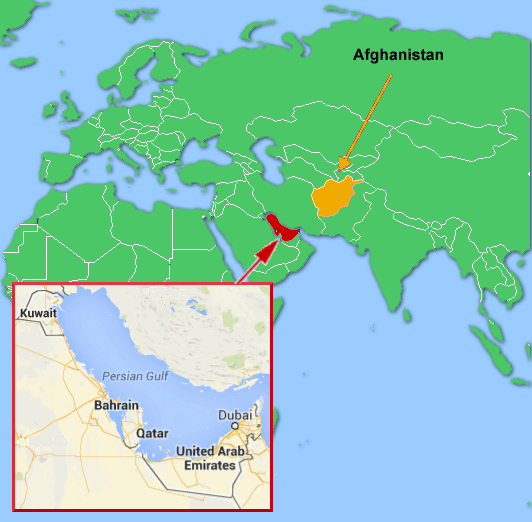
Circle the area on this map

B. The Gulf got its name from Iran’s ancient Persian Empire. Historically, Iran was known in the West as Persia, based on the writings of ancient Greek historians. But, the country’s people always called themselves Iranians. In 1935, the nation asked the rest of the world to call the country Iran. In the 1960s, Iran’s rival Arab neighbors began calling the oil-rich body of water the Arabian Gulf.
A. Doha is the capital and largest city of Qatar. In 2020, the Trump administration and the Taliban met in Doha to make a deal to withdraw all U.S. troops from Afghanistan by May 1, 2021. The Biden administration later extended the withdrawal date to August 31.
D. According to the CIA World Factbook, only famine-plagued North Korea is poorer than Afghanistan in Asia. Africa has most of the world’s poorest nations, with Burundi being the absolute poorest. Afghanistan has a GDP per person of $2,065 a year compared with $90,044 in Qatar or $62,530 in the United States.
C. Climate change could leave major cities in the oil-rich region unfit for humans to survive, according to a 2015 study by Loyola Marymount University and the Massachusetts Institute of Technology. When a combination of heat and humidity – called the wet bulb temperature – gets too high, human beings can no longer cool their bodies through the evaporation of perspiration and their organs begin to fail.